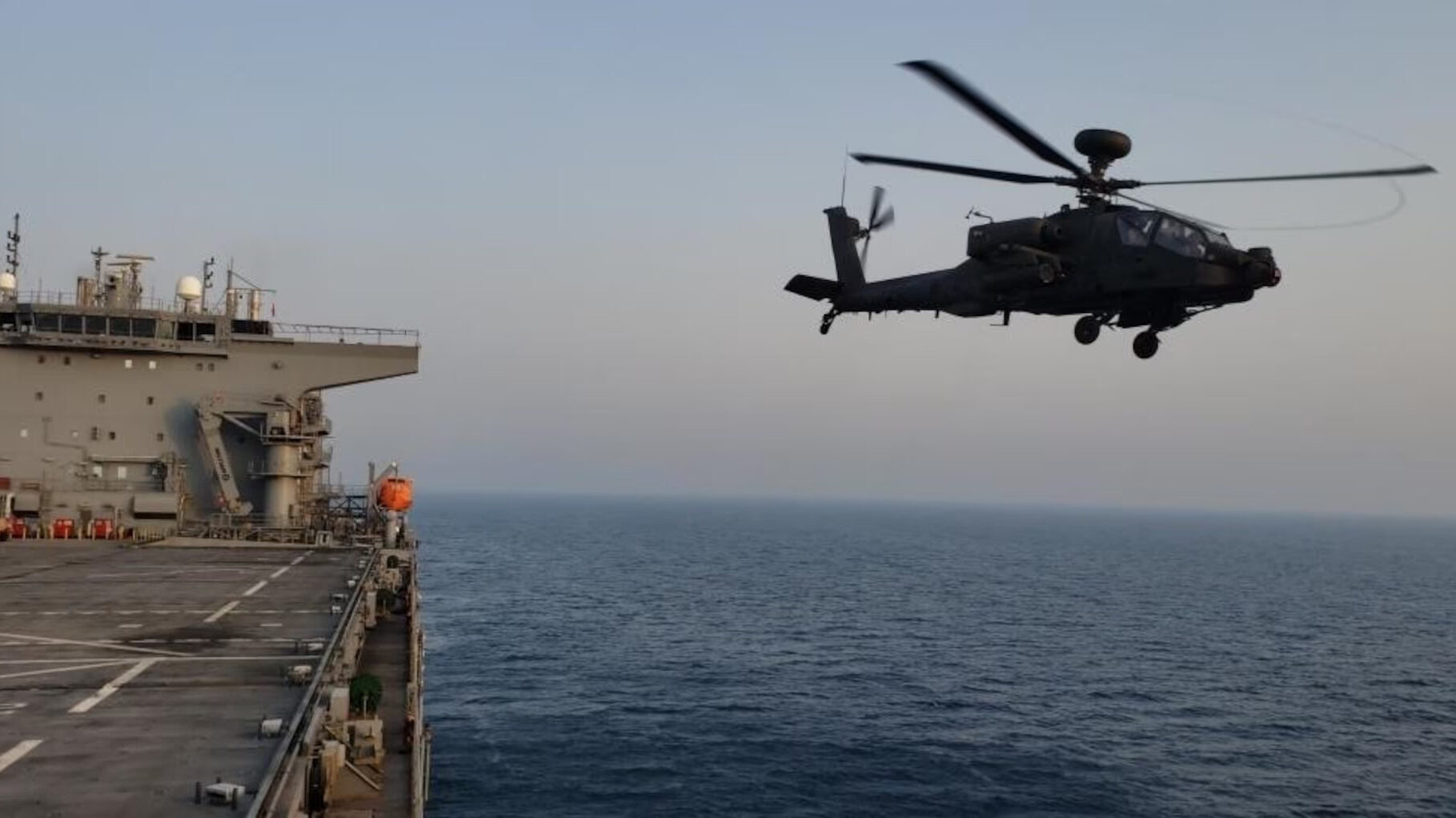
An AH-64D Apache helicopter attached to the United Arab Emirates Joint Aviation Command, launches from the flight deck during flight operations aboard the expeditionary sea base USS Lewis B. Puller (ESB 3) June 25, 2020. Thomas Joyce)
On June 1, the United Arab Emirates (UAE) announced its withdrawal from the United States-led Combined Maritime Forces (CMF) after an extensive evaluation of its security needs.
The 34-nation task force headquartered at the U.S. naval base in Bahrain was formed to provide security for civilian maritime traffic by conducting counter-piracy and counter-terrorism missions in the heavily trafficked waters of the Middle East, Africa and South Asia, including the Red Sea, the Persian Gulf, the Gulf of Aden, Arabian Sea and the wider Indian Ocean.
“As a result of our ongoing evaluation of effective security cooperation with all partners, two months ago, the UAE withdrew its participation in the Combined Maritime Forces,” Abu Dhabi’s foreign ministry said in a statement quoted by the official news agency WAM.
The UAE also said in the statement that it was committed to dialogue and diplomatic engagement to advance regional security and stability as well as ensuring navigation safety near its shores in accordance with international law.
The Emirati decision to withdraw from the CMF came amid mounting tensions in the Persian Gulf between the U.S. and Iran.
In May, the U.S. announced it will increase the rotation of ships and aircraft patrolling in and around the Strait of Hormuz after Iran seized two oil tankers near the choke point, one of which was bound to the UAE. The tankers were sized after the U.S. confiscated a China-bound Iranian oil shipment near southern Africa.
According to a report by The Wall Street Journal, the Emirati decision came in frustration at the perceived US failure to respond to Iranian threats. Citing US and Gulf officials, the newspaper reported that Abu Dhabi was disappointed and had demanded Washington to take stronger action to deter Tehran after these recent incidents.
The Emirati withdrawal from the CMF is another example of how the U.S. influence in the Persian Gulf and the rest of the Middle East is weakening. The UAE and other regional allies of the U.S. are now making efforts to improve their relations with Iran to guarantee their security. The recent Saudi-Iranian normalization deal gave a major boost for these efforts.
MORE ON THIS TOPIC:




iranian threats? they simply started acting like adults and takk directly to iranians… no need for the us acting as (abusive) parent.
saudis may normalize but i don’t think that the uae can normalize with iran just like qatar won’t normalize with assad.
but unlike qatar, the uae did normalize relations with syria recently after assad met with uae leader.
so uae likes assad, dislikes iran. qatar likes iran, dislikes assad.
it will all settle down with the time given they sit to table and negotiate.
there are many difference even from the shahist era.
verím, že toto je signál aj pre ostatných, ktorý sú v spojení zo sae. hlavne teraz mám na mysli tie štáty ktoré sú združené v opec+. mali začať budovať vlastné obranné spoločenstvo a to na základe laš. je čas sa vymaniť spod nadvlády darebáckeho štátu usa!!!
re.. ‘the u.s. confiscated a china-bound iranian oil shipment near southern africa.’
so the shipment was taking the long route around the planet to china??